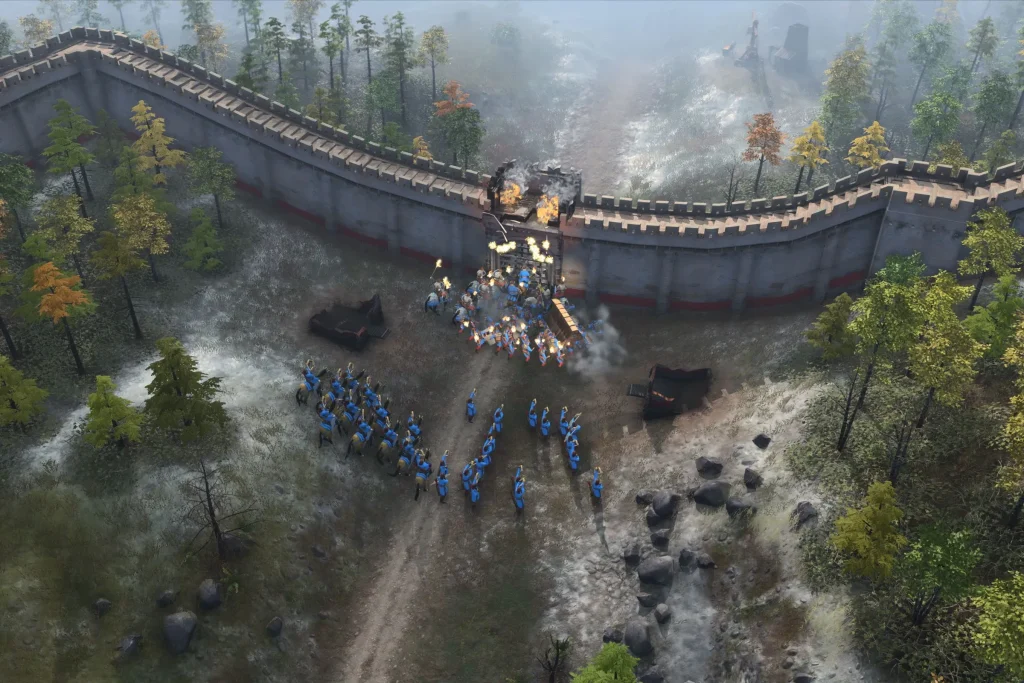In the realm of master strategy games, you need a plan, a mindset, and a steady practice routine that builds systematic habits over time. Whether you’re starting with a classic turn-based title or diving into a modern real-time approach, the core process stays the same: study the rules, observe what experienced players do, and translate that knowledge into deliberate action. This framework helps newcomers see that progress comes from consistent study and reflective practice, not from flashes of luck, and that every game offers a chance to refine judgment and timing. As you immerse yourself, the value of small, repeatable routines becomes clear: note-taking after matches, replay analysis, and targeted drills that address your recurring gaps. With time, curiosity, and disciplined effort, you’ll build a flexible toolkit that supports better decisions in diverse titles and steadily boosts your confidence at the table.
To reframe the topic with LSI-friendly language, imagine strategy as a disciplined problem-solving activity where foresight, resource juggling, and flexible planning drive outcomes. Rather than chasing a single trick, players build a repertoire of adaptable methods and study how different systems reward patient setup, precise timing, and opponent pressure. In practical terms, beginners benefit from guided practice, concise explanations, and replay reviews that reveal patterns without depending on memorized sequences. As you accumulate experience, you’ll rely on a growing toolkit of openings, transitions, and endgame concepts that you can apply across genres and titles. Along the way, you can supplement this journey with strategy game tutorials that translate theory into clearly defined drills and scenarios.
Master strategy games: Build a solid foundation with strategy game tutorials and beginner-focused practice
To truly master strategy games, you start with a clear map of the game’s core mechanics. Ground yourself with strategy game tutorials that walk through resources, units, and victory conditions, then translate that knowledge into practical drills. This approach aligns with strategy games for beginners tips, which emphasize small, repeatable wins that compound over time.
Develop a habit of deliberate study: watch top players, note recurring patterns, and reflect after each session. The goal isn’t memorizing moves but recognizing strategy game strategies that recur across titles and adapting them to new situations. By pairing study with focused drills—scouting, timing, and resource management—you’ll begin turning knowledge into confident in-game decisions.
How to win at strategy games: Practical beginner tricks and core strategies
With a clear plan for how to win at strategy games, you’ll also start valuing timing and adaptation. Begin with opponent analysis: what does your rival favor—rapid expansion, strong defenses, or a risky early rush? Predict their approach and counter before it unfolds. This is where strategy game strategies come to life: theoretical ideas stay useful only if you can apply them under pressure. Pair prediction with measured actions to keep your advantage. For strategy games for beginners tips, focus on learning core openings and safe transitions.
Leverage available resources like strategy game tutorials and community analyses to speed up your growth. Try beginner strategy game tricks in controlled practice scenarios, use replay reviews, and keep a simple log of what worked and what didn’t. As you accumulate experience across titles, your toolkit expands with flexible sequences you can deploy against different opponents. With steady practice, you’ll improve your decision-making, timing, and resource management—the hallmarks of how to win at strategy games.
Frequently Asked Questions
What are essential strategy games for beginners tips to start mastering master strategy games?
A solid start to mastering strategy games for beginners tips is to build a strong foundation. Key steps:
– Learn core mechanics: resources, units, and victory conditions.
– Study patterns from experienced players to apply strategy game strategies.
– Practice deliberately with focused drills on resource management, timing, and scouting.
– Set beginner-friendly goals and keep a simple notes log; review replays to reinforce beginner strategy game tricks.
– Reflect after each session on what to change and why.
How can I use strategy game tutorials and beginner strategy game tricks to learn how to win at strategy games and master strategy games?
Boost progress by leveraging strategy game tutorials and beginner strategy game tricks to learn how to win at strategy games and master strategy games. Core ideas:
– Build a toolkit of go-to strategies: a few versatile openings, a midgame plan, and an endgame approach.
– Analyze opponents to recognize patterns and time your actions to counter effectively.
– Use strategy game tutorials plus community guides and replay analyses to accelerate growth; combine theory with practical play.
– Practice deliberately with focused drills on scouting, economy management, and timing attacks.
– Maintain a routine that balances study and play; review replays to turn insights into action.
– Apply your toolkit across different titles to improve transferability.
| Key Point | Description / How to Apply |
|---|---|
| Learn core mechanics and base | Understand each game’s core rules, units, resources, and victory conditions. Build a simple mental model of what resources exist, how they’re gathered, and which actions reliably improve your position. Ask yourself which choices create the most reliable advantage given the current state and identify the fastest practical path without overextending. |
| Develop strategic thinking through study and reflection | Study games by experienced players to spot recurring patterns (openings, midgame transitions, endgames). After each session, debrief by identifying one decision you’d change and why to shift thinking from reactive to proactive. |
| Practice deliberately with focused drills | Design micro-drills targeting key skills (resource management, timing of aggression, scouting). Repeat until responses become automatic, building fluency that translates to steady real-game performance. |
| Begin with beginner-friendly routines and accessible goals | Set small, attainable goals (e.g., improve win rate vs. a specific archetype, master one opening). Learn common openings, typical counters, and how to defend while expanding resources. |
| Embrace beginner strategy game tricks and incremental improvements | Use practical early-game tactics (securing a second base, delaying overcommitment, prioritizing scouting). Small, repeatable gains compound into a stronger backbone. |
| Build a toolkit of go-to strategies and flexible responses | Develop a versatile set of openings, a midgame plan aligned to your resource/unit mix, and an adaptable endgame approach to convert leads into victories. |
| Learn how to win with opponent analysis and timing | Observe opponent patterns (expansion, defense, early rush) to anticipate plans and counter them. Use timing to apply pressure, pull back when needed, and pivot to new plans. |
| Use tutorials and guided practice to accelerate growth | Leverage high-quality tutorials, official guides, community analyses, replay reviews, and challenge maps to expose yourself to varied situations and tie theory to practice. |
| Practical tips for consistent progress |
|
| Putting it all together: a beginner-friendly path to mastery | Mastery comes from looping learning, applying, and reflecting. Build a solid grasp of core mechanics, layer in strategic depth through study and deliberate practice, use beginner-friendly drills, and maintain a flexible toolkit to adapt to opponents and game states. With targeted practice and thoughtful review, you’ll predict outcomes, manage resources, and execute well-timed actions. |



